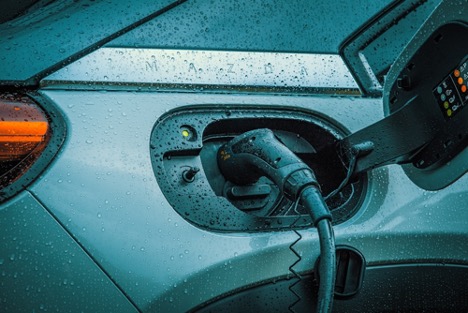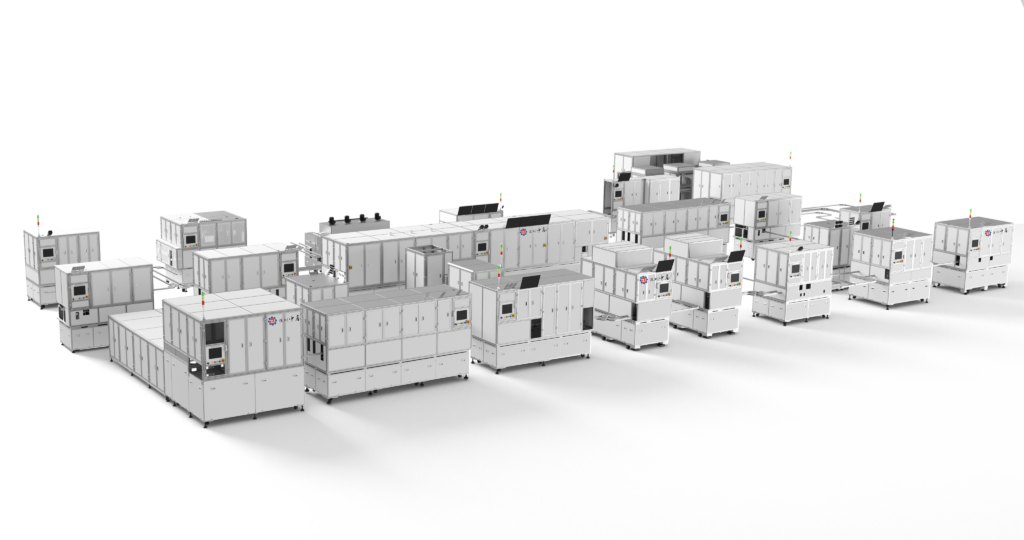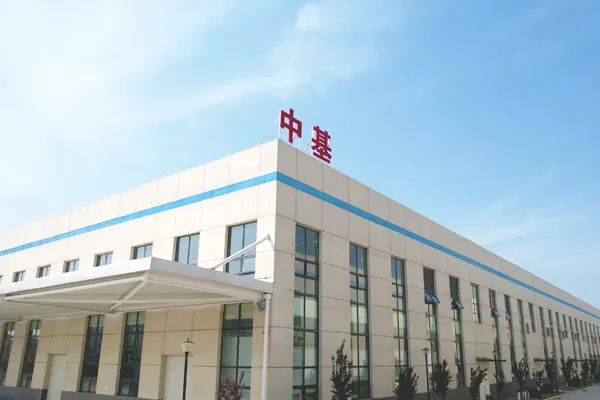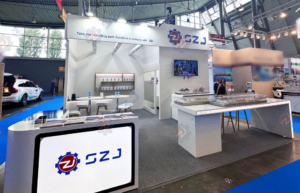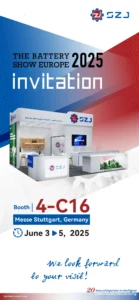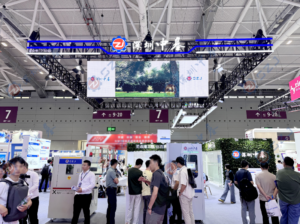The global automotive landscape is experiencing a significant transformation with the increasing growth of electric vehicles (EVs). In 2023, electric vehicles represented approximately one-quarter of all new cars sold worldwide. Remarkably, in Norway, over 90% of new car sales were electric, while in China, the figure approached 40%. This surge is fueled by advancements in EV technology, heightened consumer awareness, and robust governmental policies aimed at curbing carbon emissions.
At the core of an electric vehicle is its battery, a vital component that determines the vehicle’s range, efficiency, and performance. Given this critical role, manufacturers are intensively focusing on enhancing their car battery production capabilities. The drive for improvement is not solely about increasing battery power or longevity but also about optimizing the production process through cutting-edge automated assembly lines. These technological enhancements are essential as they significantly influence the quality and cost-effectiveness of the batteries, which in turn affects the EV’s competitiveness in the market.
To meet these challenges, various innovative assembly line technologies have been developed, each designed to address the specific needs of modern battery manufacturing. This article explores the top three types of car batteries automated assembly lines that are defining the future of battery manufacturing for electric vehicles.
Mainstream Battery Materials in Electric Vehicles
As the electric vehicle industry evolves, so too do the materials that power its core— the batteries. These two types of car batteries that are the most prevalent materials used in EVs are Lithium Iron Phosphate (LFP) and Lithium-ion ternary batteries. Each offers distinct advantages that cater to different automotive needs.
1. LFP Battery
Lithium Iron Phosphate (LFP) batteries are highly valued for their exceptional safety and longevity. Known for its strong thermal and chemical stability, this type of car battery is less prone to overheating, thereby extending its operational life compared to other types of lithium-ion batteries. Their robustness and reliability make LFP batteries a preferred option for applications that demand long-lasting performance and high safety standards.
Additionally, LFP batteries are typically less expensive to produce, as they do not rely on cobalt, a costly and ethically challenging material found in many other lithium-ion batteries. These attributes make LFP batteries a popular type in both automotive and stationary storage applications, especially in markets where cost and safety are critical factors.
2. Lithium-ion Ternary Battery
Lithium-ion ternary batteries, which utilize a blend of nickel, manganese, and cobalt in their cathodes, offer a higher energy density than LFP batteries. This results in a greater range per charge, making them particularly suitable for electric vehicles that require longer driving distances. The inclusion of nickel enhances the battery’s capacity and energy density, while manganese offers thermal stability, and cobalt helps in maintaining the battery’s life cycle.
However, the use of cobalt raises concerns regarding sourcing and environmental impact, pushing manufacturers to research alternatives or ways to reduce its content in batteries. Despite these concerns, ternary lithium-ion batteries remain a preferred option for many high-performance electric vehicles due to their superior energy output and efficiency.
Both types of car batteries play crucial roles in the automotive industry, with manufacturers choosing between them based on the specific needs of their vehicles and the priorities of their target markets. As technologies advance and new materials emerge, the efficiency, cost, and environmental impact of these batteries continue to improve, driving forward the adoption of electric vehicles worldwide.
Forms’ Type of Batteries Commonly Used in Electric Vehicles
Electric vehicle (EV) manufacturers have several options when selecting the type of battery cell that best suits their vehicle designs and performance requirements. Three of the most common forms’ types of car batteries are cylindrical cells, pouch cells, and prismatic cells:
Cylindrical Cell
Cylindrical cells are one of the oldest and most widely used designs in battery technology. Recognizable by their cylindrical shape, these cells are robust due to their hard outer casing, which not only provides structural integrity but also helps in managing thermal expansion. This design is advantageous for its ease of manufacturing and excellent mechanical stability.
Moreover, cylindrical cells typically offer good cycle life and are less prone to swelling, making them a reliable choice for many EV manufacturers. Their standardized shape allows for automated assembly lines, enhancing the efficiency of the production process.
Pouch Cell
Pouch cells, characterized by their flat, flexible, bag-like format, allow for more efficient packing and higher energy density. They lack a rigid case, which reduces their weight and the whole battery pack. This flexibility in shape and size makes this form’s type of car batteries particularly suitable for lighter, space-efficient vehicles where design and weight optimization are crucial.
However, pouch cells can be more vulnerable to physical damage and swelling due to the lack of a hard protective shell, necessitating careful handling and robust safety mechanisms in battery management systems.
Prismatic Cell
Prismatic cells are encased in a hard, flat rectangular, or square shell, offering a compromise between the robust structure of cylindrical cells and the space efficiency of pouch cells. This design maximizes the use of space within the battery pack, allowing for more battery cells in a given volume, which can enhance the overall battery capacity and vehicle range.
Prismatic cells are also easier to cool and can be stacked efficiently, making them well-suited for larger EV applications such as trucks and buses. Their structured form factor contributes to simplified battery design and easier integration into diverse vehicle architectures.
Each of these form’s types of car batteries has its place in the diverse ecosystem of electric vehicles, depending on the specific requirements for energy density, durability, weight, and cost. EV manufacturers often select a battery form that aligns with the overall vehicle design and performance goals, leveraging the strengths of each to optimize the efficiency of their electric vehicles.
Advancing Battery Manufacturing: The Shift to Automated Assembly Lines
The manufacturing process for electric vehicle (EV) batteries, particularly for the types of car batteries discussed—cylindrical, pouch, and prismatic cells—has evolved significantly from the battery manufacturing technologies and processes used for conventional car batteries. This evolution is marked by resorting to automated assembly lines increasingly, which offer substantial advantages over traditional manufacturing techniques.
Streamlined Production Processes
Traditional car battery production, typically for lead-acid batteries, involves manual-intensive processes that can be laborious and time-consuming. In contrast, the production of EV batteries—especially with the use of automated assembly lines—has transformed into a more streamlined, efficient, and precise operation. Automation enables the consistent handling and assembly of battery components, which is crucial for maintaining the high quality and reliability required for EV batteries.
Enhanced Quality and Consistency
Automated battery assembly lines utilize advanced robotics and precision equipment to ensure each battery meets stringent standards consistently. As a result, it reduces the likelihood of defects and variations between products, which is particularly important for EV batteries that demand high performance and safety standards. Automated systems can also detect and correct errors in real-time, further enhancing the overall quality of the production output.
Increased Production Efficiency and Scalability
Automated assembly lines can operate continuously over extended periods, significantly increasing production capacity to meet the growing demands of electric vehicles. This scalability is vital for meeting the growing demand for EVs globally. Additionally, automation reduces the time taken for each step of the lithium battery manufacturing process, from initial cell assembly to final packaging, thereby speeding up the time-to-market for new vehicles.
Cost Reduction
While the initial investment in automated battery assembly lines can be significant, the long-term cost savings are considerable. Automation reduces labor costs, minimizes waste through precise material handling, and decreases the incidence of costly errors and reworks. Over time, these factors contribute to a lower cost per unit, making EVs more affordable for consumers.
Environmental and Safety Benefits
Automated lines also contribute to environmental safety by minimizing human exposure to hazardous materials used in battery manufacturing. Furthermore, precise automation helps reduce waste and optimize material usage, which is crucial for sustainability in battery production.
Introducing SZJ Automation’s Advanced Automated Assembly Lines for Various Types of Car Batteries
We, SZJ Automation, are at the forefront of innovation in the field of battery manufacturing, offering specialized automated assembly lines designed for cylindrical, pouch, and prismatic cells. Our battery manufacturing turnkey solutions integrate cutting-edge technology and engineering to ensure efficient and stable production, from raw materials to finished batteries.
1. Intelligent Solutions for Cylindrical Cell Assembly Line
Our SZJ Automation’s Intelligent Solution for Cylindrical Cell Assembly Line, like our Large Cylindrical Cell Production Line Turnkey Solution, epitomizes efficiency and stability in car battery manufacturing. This line features an automated cell insertion machine with a turret cam drive mechanism, enhancing production efficiency and cell stability. The line also includes a laser sealing machine and a sealing pin welding machine, which ensure rapid and stable welding, thereby preventing potential short circuits and leaks. Besides, this battery manufacturing turnkey solution also contains appearance inspection, taping, grading, welding, and winding machines respectively, which contribute to a seamless production flow for your car battery manufacturing.
2. Intelligent Solutions for Pouch Cell Assembly Line
For pouch cell batteries, we also provide a comprehensive and intelligent solution: the Pouch Cell Production Line Turnkey Solution. With a set of advanced battery manufacturing machines, this battery-automated assembly line is designed to optimize every facet of the production process. With an automated production rate spanning from 10 to 24 PPM, our solution ensures swift and efficient manufacturing operations, enabling you to meet growing demands with ease. Moreover, our unwavering commitment to quality is exemplified by a remarkable 99% qualification rate across all products, providing assurance that every battery leaving your facility meets the highest stringency of performance and reliability. Additionally, our solution boasts an impressive 98% equipment utility rate, minimizing downtime and maximizing productivity.
3. Intelligent Solutions for Prismatic Cell Assembly Line
The Prismatic Cell Production Line Turnkey Solution offered by SZJ Automation is tailored for high precision and efficiency, manufacturing standard and durable car batteries for EV manufacturers. Our prismatic battery manufacturing solution maintains a steady and automated productivity range of 6-20PPM, ensuring a consistent output to meet varying demands. Furthermore, our self-developed continuous laser welding technology revolutionizes prismatic and blade cell production equipment, boosting efficiency by an impressive 3-5 times compared to traditional segmental welding methods.
Conclusion: Empowering the Future with SZJ Automation
As the EV industry continues to grow, the demand for high-quality, efficient batteries is more critical than ever. We, SZJ Automation, stand at the forefront of this technological evolution, offering sophisticated automated assembly lines for cylindrical, pouch, and prismatic batteries. These are our scores based on our study in this industry over 20 years. Choosing SZJ Automation means partnering with a leader whose expertise ensures that your production capabilities are future-ready, driving the electric vehicle industry forward with reliability and innovation. Contact us today!
References
- Available at: https://ourworldindata.org/electric-car-sales

